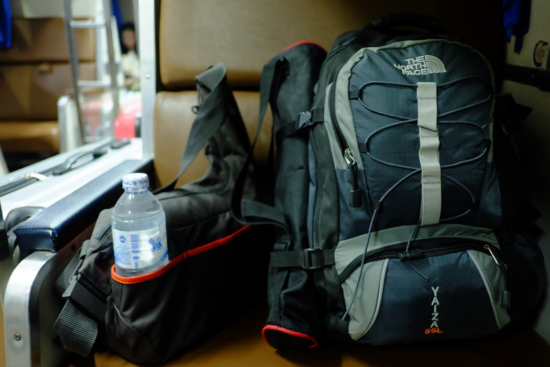Traveling to a Hot Spot? Use This Packing List
Hong Kong. Turkey. The Middle East. South America. Africa. Even India and Mexico.
These are just some of the most dangerous places to travel in 2020 because of geopolitical shifts, terrorism, social unrest, and war. The upcoming 2020 U.S. presidential election also creates an added geo-political risk for travel especially for American executives.
But what if you’re a business executive who must visit these destinations to conduct meetings face-to-face? Is it worth the risk?
Planning for such a trip is complex, and highly trained, experienced professionals can make a potential dangerous trip less hazardous because of in-depth knowledge about a region or country. They will advise a company about safety procedures with advance work and effective planning so executives can feel safe while conducting business.
For example, packing for a trip to a hot spot is complex. Packing? Seriously? Yes. Packing to travel to Chile or Iraq, for example, is not like packing for safe travel to Disney World. By a long shot.
How to pack for a trip to a dangerous country?
Before sending any executive, whether American or otherwise to a global hotspot, employers should have a comprehensive current overview of the country or region’s geopolitical situation from the State Department or the Overseas Security Advisory Council (OSAC).
Companies should plan meticulously and consider everything from registering the trip with the local embassy or consulate to booking the right hotel room.
Every executive should have a Go Bag for an emergency. Go Bags are good to have in any crisis situation and not only in a foreign country. They can be life-saving during a natural disaster, a home fire, or even a roadtrip. However, they are critical for anyone traveling to a global danger zone.

EXECUTIVE GO BAG CONTENTS:
- A prepaid long-distance calling card. Yes, they’re still available. A prepaid calling call can allow someone to call back to the United States quickly and cheaply. A cell phone may not work in even if you have international service. A prepaid card will guarantee that you can call efficiently in most parts of the world.
- Small toilet paper packs are available in pharmacy stores. Toilet paper is a luxury item in many places and not easily attainable.
- Mini-chemical light sticks. Sometimes countries experience blackouts and they can be used to see in low light situations. They can also be placed on specific spots on a vehicle to track them in night traffic.
- A small flashlight attached to a piece of gear that you always carry while traveling.
- A 12’ paracord with a decorative weave attached to a backpack. A paracord is invaluable in emergency situations and can be used in various ways including making a tourniquet to stop bleeding.
- A compass and a map. Yes, really. While most of us rely on our phones these days for directions, many places on the planet don’t have cell service.
- Some traveler’s checks and money in the local currency (pounds, Euro, dollars) from previous trips, if you have them. If not, exchange some of your money into local currency as soon as you arrive in the country.
- A passport and a photocopy of the passport. Keep a scanned version on your phone. Your company should also have a copy of your passport.
- Chopsticks. Don’t laugh. World travelers carry three pairs – reusable, disposable, and metal. They have many uses other than as an eating utensil including propping up a window if
air is needed and as a weapon on soft tissue areas or pressure points on the body. - Two or more credits cards in different places
- Snacks and protein bars, and some pouched food depending on your destination. If you get stranded, these will become invaluable.
- A small roll of duct tape rolled around a pencil or pen. Duct tape can transform into a patch for an array of things including leaky water bottles and ripped sleeping bags. It can also be used as in medical situations such as covering a blister or hot
spot, or removing ticks or cactus needles. - Emergency blanket, smaller than a pack of tissues.
- A cheap, disposable rain poncho.
- Dust masks. These are common in many Asian countries because they prevent disease spread and help in high-pollution areas such as Beijing.
- A USB battery charger for multiple devices, cell charger cables, and a multicountry power adapter with USB.
- Pre-printed labels with your office address, phone number, and email address. Place
one or more of these labels in each checked bag. - Dummy
wallet containing a small amount of money and expired credit cards. If youare mugged , you can give this wallet and still have most of yourbelongings and likely your life. Stash belt with cash. Your grandfather may carry one of these, and you maylaugh at him. But you need to have a discreet one when you travel.
If a company decides to send executives to a high-risk country or region, it’s smart to hire executive protection. Regardless of the region of the world where traveling, contact Global Strategies, Inc., for more information about risk reduction.

